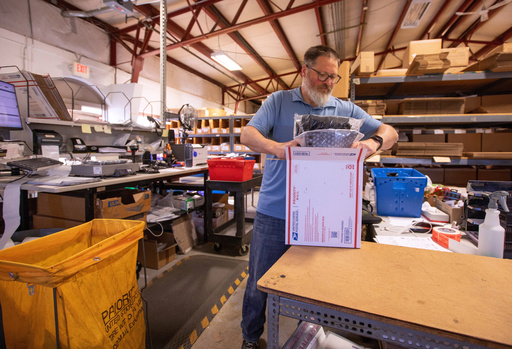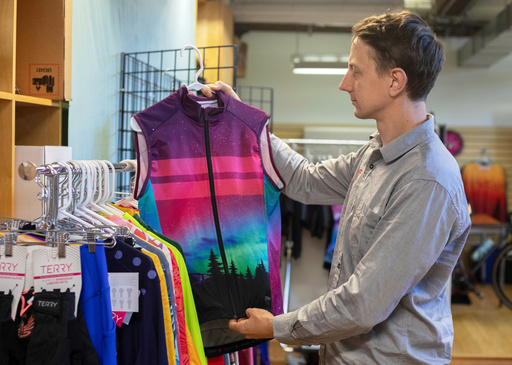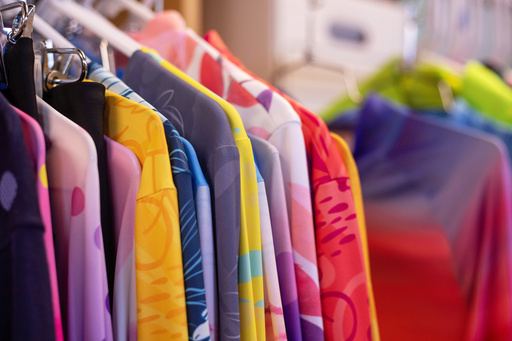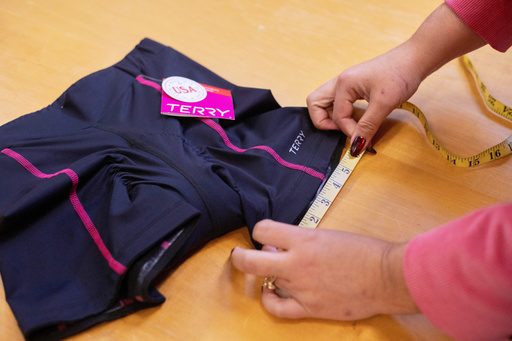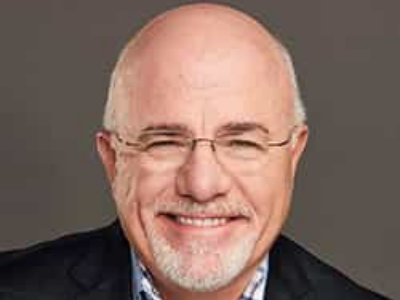A Vermont cycling apparel company is trying to survive Trump's tariffs. Will the Supreme Court help?
News > Top Stories

Audio By Carbonatix
11:07 PM on Friday, October 31
By LINDSAY WHITEHUST
BURLINGTON, Vt. (AP) — From the moment President Donald Trump imposed tariffs on nearly every country, Nik Holm feared the company he leads might not survive.
Terry Precision Cycling has made it 40 years with a product line specifically for women, navigating a tough early market, thin profit margins and a pandemic-era boom and bust. But Holm, the company president, wasn’t sure how his operation could pay the tariffs first announced in April and stay in business.
“We felt like our backs were up against the wall,” he said, explaining why he joined a lawsuit challenging the tariffs that the Supreme Court will hear next week.
Terry Precision Cycling’s offices are tucked behind a Burlington, Vermont, coffee shop on a leafy street that bursts into color in the fall. Local accolades share wall space with bike saddles and a color wheel's worth of fabric samples. Orders are shipped out from a warehouse a few miles away.
It seems an unlikely epicenter for the furor over Trump’s tariffs playing out on the trading floors of global market exchanges and in the boardrooms of international corporations.
But Terry Precision Cycling is one of a handful of small businesses that are challenging many of Trump's tariffs Wednesday before the Supreme Court in a case with extraordinary implications for the boundaries of presidential power and for the global economy.
The company is small, but it works with suppliers around the world. It sells cycling shorts manufactured in the U.S. using materials imported from France, Guatemala and Italy. Its distinctive, colorfully printed bike jerseys are made with high-tech material that can't be found outside of China.
Tariffs mean the company has to pay more for all those imports, and without the cash reserves of a big company, it has few choices to make up the shortfall besides raising prices for customers. The bewildering pace of changes in tariffs, especially on goods from China, has made setting prices more like rolling the dice. “If we don’t know the rules of the game, how are we supposed to play?” Holm asked.
The company had to add $50 to one pair of shorts in the pipeline when China tariffs hit 145%, bringing the price to $199. “Name the cost and we can name the price, and then we can backtrack to see who can actually afford it,” Holm said.
The other companies in the lawsuit he joined are also small businesses, including a plumbing supply company in Utah, a wine importer from New York and a fishing-tackle maker in Pennsylvania.
Holm started working for the company more than a decade ago, taking up cycling in earnest alongside the job. He often rides his bike to work and props it outside his office, alongside the company's designers and salespeople. A thin man with deep-set eyes and side-parted hair, Holm was named president about two years ago as the company started by women's cycling pioneer Georgena Terry was wrestling with a downturn in the outdoor market after the coronavirus pandemic. His normally level demeanor gets animated when he talks about the design of their padded shorts or the level of SPF protection in the jerseys.
“It’s all about fit and function, and feeling safe and comfortable,” he said. “That’s our foundation, getting people, getting women, riding. More butts on bikes and getting out there.”
The businesses challenging Trump's tariffs are represented by Liberty Justice Center, a libertarian-leaning legal group usually more aligned with conservative causes. But they say Trump is wrong on sweeping tariffs, which are projected to collect a total of some $3 trillion from businesses over the next decade, according to the Congressional Budget Office.
They argue the president is using an emergency powers law that doesn't even mention tariffs to claim nearly unlimited powers to impose and change import duties at will, something no other president has done on such a scale.
“It is practically what the American Revolution was fought over, the principle that taxation is not legitimate unless it is adopted by the representatives of the people,” said Jeffrey Schwab, an attorney with the Liberty Justice Center.
The Trump administration said the law lets the president regulate importation, and that includes tariffs. The president has been vocal about the case, suggesting at one point he might go to the arguments himself — something no other sitting president is recorded to have done. “That’s one of the most important cases in the history of our country because if we don’t win that case, we will be a weakened, troubled financial mess for many, many years to come,” he said.
The law Trump used for many of his tariffs, the International Emergency Economic Powers Act, has been invoked dozens of times over the decades, often to impose sanctions on other countries.
But no president had used it for tariffs until February, when Trump placed duties on China, Mexico and Canada. He said the countries had not been doing enough to stop illegal immigration and drug trafficking.
In April, he unveiled “reciprocal” tariffs on nearly all U.S. trading partners with a baseline of 10% and higher increases for specific countries, though many of those have since been put on hold. Tariffs on China hit 145% at one point but have since come down and are headed to 20% overall under Trump’s latest deal with China.
Multiple lawsuits have been filed over the emergency-powers tariffs. The Supreme Court also will hear two other cases on Wednesday, one from a group of Democratic-leaning states and another from an Illinois educational toy company.
The plaintiffs have won two rounds in lower courts, though the government did convince four appellate judges that the law does allow the president broad power over tariffs.
The high court will now be asked to rule on the scope of a president's authority. The justices, three of whom were appointed by Trump, have so far been reluctant to check his extraordinary flex of executive power.
But they have been skeptical of presidential claims of power before, as when Joe Biden tried to forgive $400 billion in student loans under a different law dealing with national emergencies. The court found that the law didn’t clearly give Biden the power to enact such a costly program.
Trump’s tariffs, by contrast, are expected to total in the trillions. They’re also projected to increase people’s bills by about $2,000 per household this year, an analysis from the Yale Budget Lab found.
Revenue from tariffs totaled $195 billion by September, more than double what it was the year before — though the government could have to pay back that money if the justices strike down the tariffs.
Trump has acknowledged that Americans could feel some short-term pain from tariffs but maintained that they’ll bring about more favorable trade deals and help American manufacturing. His administration says the tariffs are different from the Biden student-loan case because they're about foreign affairs, an area where it says the courts should not be second-guessing the president.
For the people at Terry Precision Cycling, though, those big-picture political questions were far from their decision to join the lawsuit. Holm thought more about the company's 20 or so employees, its legacy and the women who buy its products out of a love for cycling.
“If it becomes so unaffordable for them to do it, less can enter into that joy, that freedom of being on a bike,” he said. “It was about surviving this uncertainty.”

